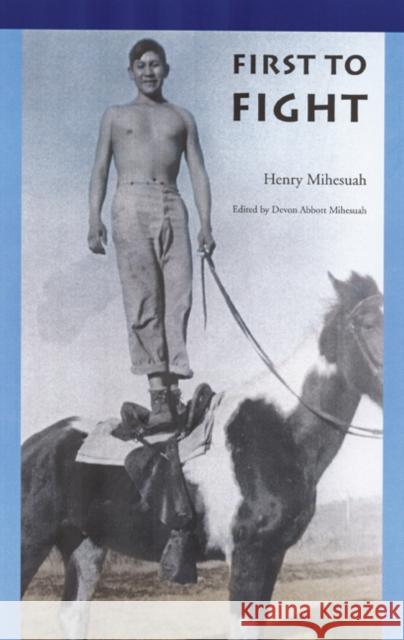First to Fight » książka
First to Fight
ISBN-13: 9780803232228 / Angielski / Twarda / 2002 / 118 str.
Henry Mihesuah, a Comanche of the Quahada band, has led an ordinary modern American Indian life filled with extraordinary moments. Growing up in the 1920s and 1930s on his family's allotment outside Duncan, Oklahoma, Mihesuah was a member of a family of farmers who gave part of what they grew to black sharecroppers and often helped feed their poorer white neighbors. Never afraid of controversy and always the first to fight, Henry Mihesuah fell in love with and married a white woman and then served a dangerous tour of duty in the Marines in post-World War II China. In the 1950s he took a chance and, encouraged by a federal government program, relocated along with many other Indians to seek urban employment in California. Barely surviving a horrific traffic accident, Mihesuah eventually returned home to Oklahoma, where he has spent the last few decades fighting racism and attempts to take his family's land, eschewing local politics yet also taking many steps to reclaim and revitalize connections to his Comanche family and culture, past and present. Henry Mihesuah spoke at length about his life to his daughter-in-law, accomplished historian Devon Abbott Mihesuah, who has carefully researched and edited those hours of conversation into an engaging, detailed account that is at once honest, informative, and moving. Readers come to know and respect how one forthright Comanche man unyieldingly walks his own path in the modern world, the ways in which events big and small have affected him, and how, with his wife, family, land, strong opinions, and tough choices made along the way, Henry Mihesuah leads a happy and fulfilling life. Devon Abbott Mihesuah is a professor of applied indigenous studies and history at Northern Arizona University. She is the editor of the American Indian Quarterly and numerous books on Native history and culture, including Repatriation Reader: Who Owns American Indian Remains and Natives and Academics: Researching and Writing about American Indians, both published by the University of Nebraska Press.











